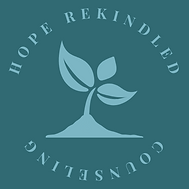
Therapy for New Moms & Hope-to-be Moms
Imagine having a safe place to take off your "I'm fine" mask...
Imagine sharing your trying to conceive journey with someone who won't say, "have you tried xyz?"...
Imagine feeling confident in your ability to cope with the transition to motherhood...
Compassionate Perinatal Therapy
Therapy for New Moms & Hope to be Moms Includes:
-
A safe place to share your story
-
Effective tools to manage anxiety and/or OCD symptoms
-
Cognitive skills that provide relief from intrusive thoughts
-
Coping skills for big emotions
-
Grief processing
-
Treatment approaches offered: Emotionally Focused Therapy, Acceptance-Commitment Therapy, Exposure-Response Prevention, Inference-based CBT, and the Art of Holding
Therapy for New Moms & Hope to be Moms Outcomes:
-
Improved mood
-
Improved coping skills
-
Decreased anxiety and overwhelm
-
Improved body image
-
Improved support system
-
Reduced shame
-
Improved self-esteem and self-confidence
-
Increased flexibility/decreased need to be "perfect"
Therapy for Infertility, Miscarriage, and the Emotional Journey of Trying to Conceive
The path to parenthood is not always linear—and for many, it’s filled with grief, anxiety, and uncertainty. If you are struggling with infertility, have experienced pregnancy loss, or are facing emotional challenges while trying to conceive, you are not alone. These experiences can be deeply isolating, often accompanied by sadness, anger, shame, and a sense of helplessness. But that's where therapy comes in.
At Hope Rekindled Counseling, I provide compassionate, evidence-based therapy to support individuals and couples through the emotional complexities of:
-
Infertility and fertility treatments (IVF, IUI)
-
Pregnancy loss, including miscarriage, stillbirth, and chemical pregnancies
-
Recurrent pregnancy loss and unexplained infertility
-
The stress and anxiety of month-to-month trying to conceive
Therapy can be a space to process grief, create effective self-care plans, manage relationship strain, learn effective anxiety management skills, and cope with the big emotions that often accompany this journey. Whether you're navigating medical decisions, mourning a loss, or just trying to hold onto hope—your emotional wellbeing matters.
Together, we will honor your experience without judgment, help you develop tools to manage anxiety and grief, and support you in moving forward—whatever that path may look like.
Therapy for Postpartum OCD & Postpartum Anxiety
Bringing a baby into the world can be a time of joy—but it can also be a time of overwhelming fear, racing thoughts, and emotional distress. If you're experiencing intense worry, constant "what if" thoughts, or intrusive fears about your baby’s safety, you may be dealing with postpartum anxiety or postpartum OCD (Obsessive-Compulsive Disorder). These conditions are more common than many people realize, and with targeted therapy for postpartum OCD and anxiety, most experience truly significant improvement in their symptoms.
What Does Postpartum Anxiety Look Like?
Postpartum anxiety may include:
-
Persistent worry or fear about your baby’s health and safety
-
Feeling constantly on edge, restless, or unable to relax
-
Physical symptoms like racing heart, shortness of breath, or trouble sleeping—even when the baby is sleeping
-
Difficulty concentrating or feeling “mentally stuck” in a loop of worry
Understanding Postpartum OCD
Postpartum OCD involves unwanted, intrusive thoughts or mental images—often distressing or violent in nature—paired with compulsive behaviors or mental rituals to reduce anxiety. You might:
-
Have unwanted thoughts of harm coming to your baby (even if you would never act on them)
-
Feel compelled to check things repeatedly (like breathing or locks) or avoid certain actions or objects out of fear
-
Engage in mental rituals, like silently repeating phrases or reviewing memories to “make sure” you haven’t done anything wrong
These symptoms can feel terrifying—but they do not mean you are a danger to your baby or are “losing it.” Postpartum OCD is a treatable anxiety disorder, not a reflection of your character or your ability to parent.
How Therapy can Help Postpartum OCD & Anxiety
In therapy, we'll create a safe, nonjudgmental space to:
-
Understand what’s happening in your mind and body so that we can accurately treat your symptoms
-
Reduce the power of intrusive thoughts and compulsions
-
Learn tools to manage anxiety without relying on constant reassurance or avoidance
-
Support your transition into parenthood with compassion and confidence
Depending on your symptoms, I'll pull from evidence-based approaches like Inference-based Cognitive Behavioral Therapy (CBT), Acceptance-Commitment Therapy, and Emotionally Focused Therapy, specifically adapted for the perinatal period.
With the right support, you can feel like yourself again—and develop confidence in your role as a parent.
I think I need Prenatal/Postpartum Therapy, what's next?
If you're ready to take the next step, contact me today to schedule a free, 15 minute consultation or learn more about therapy for postpartum mental health. I'd be honored to hear your story.

.png)